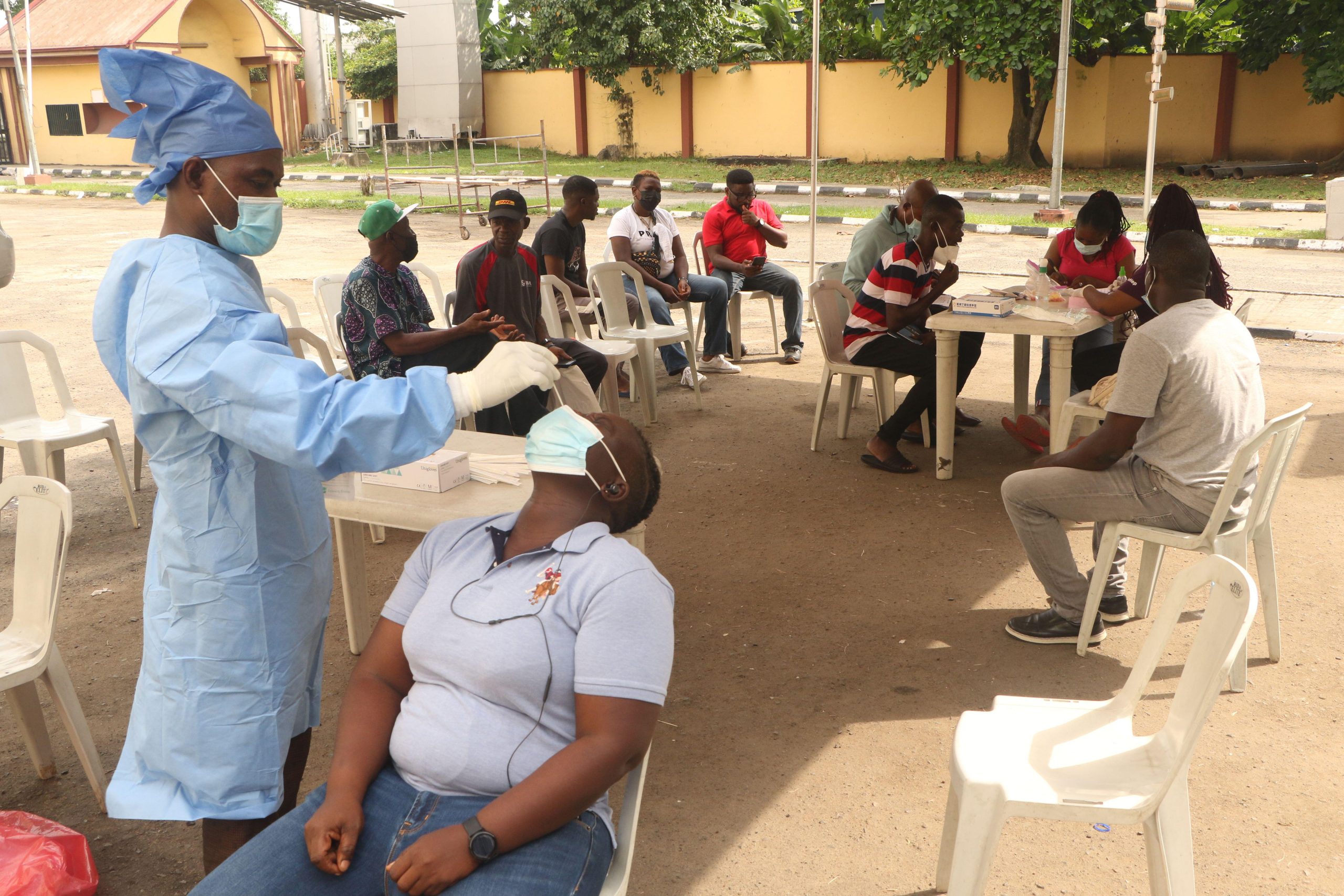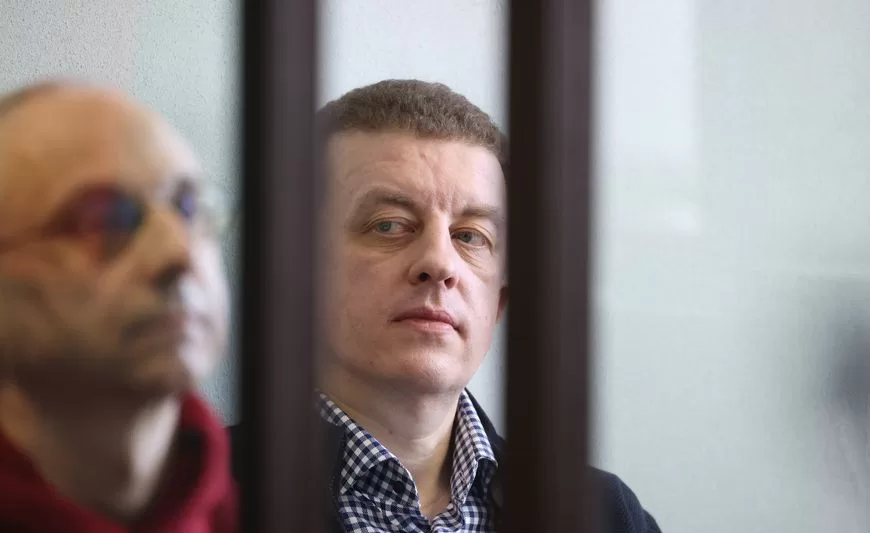This article first appeared in Volume 54, Issue 1 of our print edition of Index on Censorship, titled The forgotten patients: Lost voices in the global healthcare system, published on 11 April 2025. Read more about the issue here.
With a growing population that now exceeds 200 million, Nigeria’s demand for effective healthcare is immense – but the sector is critically underfunded. Less than 4% of the country’s GDP has been spent on health in recent years, resulting in operational inefficiencies, the deterioration of medical infrastructure, health professionals migrating to other countries, and medical tourism, where wealthier Nigerians pay for healthcare abroad instead of at home.
This year, the health sector was allocated only 5.18% of the total governmental budget, which will further impact the provision of quality services and deepen disparities in access.
Last September, the World Bank approved a $1.57 billion loan for Nigeria, including $570 million to strengthen primary healthcare provision. This is one of many international funds provided to help improve the country’s healthcare infrastructure. However, systemic failures including corruption divert essential resources away from those who need them most.
A recent report from Transparency International – a global coalition against corruption – highlights corruption as a barrier to effective healthcare delivery globally and indicates that $500 billion is lost to the problem annually. Nigeria ranks 140 out of 180 in its Corruption Perceptions Index, reflecting its pervasive nature within the country’s institutions. In healthcare, corruption manifests in many ways, including organ trafficking and unethical transplants, counterfeit drugs and the diversion of humanitarian aid.
In north-east Nigeria, the illegal trade of Ready-to-Use Therapeutic Food, which is intended for malnourished children, highlights the severe misuse of humanitarian aid, with healthcare workers implicated in diverting supplies for sale in local markets.
Systematic financial abuse has also been documented by organisations set up to help Nigerians access affordable, quality healthcare. The National Health Insurance Scheme (NHIS), for example, allegedly misappropriated more than 6.8 billion Nigerian Naira ($4.5 million) through illegal allowances between 2016 and 2017. Despite its mandate to reduce out-of-pocket healthcare spending, the NHIS has managed to cover only 5% of Nigerians since it began in 2005, with the majority of Nigerians still financing their own healthcare through out-of-pocket payments.
A report by the news agency Sahara Reporters revealed rampant corruption at the National Hospital Abuja in Nigeria’s capital, where patient-staff bribery and payments to private accounts are common. In another concerning account at a community health centre in Lagos, one anonymous healthcare worker told Index that contracted health workers who were paid to immunise young children had recorded discarded oral polio vaccinations as “administered”. This distortion not only alters public health data but also places entire communities at risk of preventable diseases. There was also alleged misuse of resources, with the source reporting that solar-powered lights intended for use in healthcare centres were installed in the homes of local politicians instead.
Challenges faced by whistleblowers
Amid these challenges, whistleblowing has emerged as a critical strategy for combating corruption. Experts identify it as an accountability tool that can promote transparency and reduce corruption in healthcare service delivery. However, it is fraught with challenges, including intimidation, a lack of legal protection and a culture of silence. Whistleblowers endure significant personal risks, including emotional distress, underscoring the need for protective measures and a supportive environment.
A major shortcoming is the law. Onyinyechi Amy Onwumere, of the Civil Society Legislative Advocacy Centre (CISLAC), provides free, confidential and professional legal advice to victims and witnesses of corruption. She noted: “Nigeria does not have a comprehensive whistleblowing law. Existing protections are fragmented and insufficient, leaving whistleblowers vulnerable to retaliation.
“Whistleblowers in Nigeria’s healthcare system often encounter retaliation, including threats, suspension or sacking, and even physical harm. These actions create a toxic atmosphere where human rights violations thrive, and potential whistleblowers are discouraged from coming forward.
“The failure to adequately protect whistleblowers leads to a deteriorating healthcare system and a loss of public trust.”
There is also a lack of awareness among potential whistleblowers regarding their rights and the protections and reporting mechanisms that do exist, she added. According to the Centre for Fiscal Transparency and Public Integrity, a Transparency and Integrity Index the organisation compiled found that only 10 ministries, departments and agencies out of 512 in Nigeria have a whistleblower policy. “This is far from best practice,” said Onwumere.
Cultural and systemic barriers
Cultural and societal norms create a challenging environment for whistleblowers. Informal corruption networks thrive where they are tolerated, particularly when they benefit the community. Tosin Osasona, a programme manager at the NISER/MacArthur Foundation Research Grant Project on Corruption Control in Nigeria, explained: “In a society where loyalty is highly valued, speaking out against one’s institution can be perceived as a betrayal.”
This attitude discourages people from stepping forward.
Osasona highlighted the professional risks that whistleblowers face. “They often encounter blacklisting by seniors, reduced future job prospects and ostracisation. The reality is that potential whistleblowers are intimidated, isolated and discouraged.”
He stressed the need for a dedicated whistleblower reporting system tailored to the healthcare sector. “A reporting mechanism that guarantees confidentiality, independence, and impartiality is essential to breaking the cycle of corruption,” he said.
One community health officer told Index that patients who were already burdened by the cost of treatment could find themselves extorted for basic medical services. They explained how a patient recently reported a staff member for selling injections that were meant to be free and for inflating the cost of other items.
“Instead of facing disciplinary action, the individual was merely transferred to another clinic in the subdivision.”
And when staff members are the whistleblowers, they ultimately get transferred, “perpetuating a cycle of corruption and silence with no real change”, the source added.
This climate of suppression extends to the media, where censorship continues to stifle investigative journalism – particularly on financial embezzlement. Despite amendments, authorities continue to misuse the broad powers of the 2015 Cybercrimes Act to detain and prosecute journalists uncovering corruption.
The path forward
There are severe consequences of widespread corruption in healthcare, including loss of life, increased healthcare costs and a deterioration of the health sector, disproportionately affecting vulnerable people.
Yusuff Adebayo Adebisi, a pharmacist and director of research and thought leadership at the international organisation Global Health Focus, said: “Corruption in healthcare resource allocation damages patient care. It deprives people who need treatment of crucial supplies and funding. This problem leads to drug shortages, outdated equipment and neglected facilities – all of which put patients at risk. Some people turn to expensive private clinics or skip treatment entirely because vital resources have been syphoned away.”
A recent review from five English-speaking West African countries, including Nigeria, suggests that poor working conditions and low wages push some healthcare workers to engage in unethical behaviour. Adebisi emphasised that “a real solution calls for a detailed understanding of how corruption operates in each place so that decision-makers can craft effective strategies that address these problems at their core”.
Empowering healthcare professionals to safely report corruption and mismanagement requires a combination of legal protection, secure reporting channels and a supportive workplace culture. Adebisi said that whistleblower protection laws are “essential” and should be communicated clearly to staff “so they know they will be shielded from retaliation”. Secure, anonymous platforms – such as confidential hotlines or encrypted digital tools – can also help professionals speak up without fear of losing their jobs or facing harassment.
Training and awareness programmes on ethics and accountability can boost staff confidence. Adebisi suggested that “working with professional associations, non-governmental organisations and community groups adds an extra layer of support and helps create a culture where reporting is seen as a collective responsibility rather than an individual risk”.
International models provide useful insights into how Nigeria can strengthen its whistleblowing framework. For instance, in the UK, National Health Service organisations rely on “Freedom to Speak Up guardians” who serve as neutral, trusted people who staff can approach with sensitive concerns. In some Latin American countries, partnerships between government agencies and civil society groups have led to digital whistleblowing platforms that maintain user anonymity. These ideas could be tailored to Nigeria, said Adebisi, taking into account the “unique challenges” of different regions.
Artificial intelligence can also enhance these efforts. He explained that “tools powered by machine-learning can track procurement data, pinpoint suspicious patterns in drug prescriptions and flag irregularities that might indicate theft or bribery”. While technology alone won’t solve the issue, he believes that integrating AI with “robust legal frameworks” and education programmes could help to “significantly strengthen oversight”.
“There’s no single solution that works for every institution, so it’s important to combine strategies that promote accountability, protect staff and foster a culture of transparency.”
A lack of accountability can have real-world consequences. One nurse in a teaching hospital told Index how corruption in resource management exacerbated existing disparities.
“Some wards are fully equipped with state-of-the-art machines, have a constant power supply and are staffed with highly efficient medical personnel,” she explained. “Meanwhile, other units struggle with outdated equipment, erratic electricity and severe staff shortages.”
When whistleblowers have the support of the media and the public, their reports can lead to meaningful reform. Onwumere highlighted the Ministry of Niger Delta Affairs scandal, where a whistleblower’s revelations of looting at the ministry prompted policy changes. Similar pressure in the healthcare sector could drive accountability and bring change.
Ensuring that those who expose wrongdoing in healthcare can speak out freely is not merely a matter of individual rights – it is a critical step towards a functional and equitable healthcare system for the tens of millions of Nigerians who depend on it.






